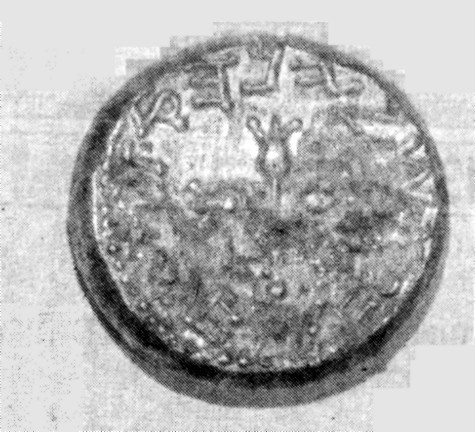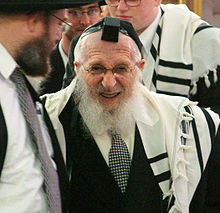| |
This Google Custom Search looks only
in this website.
Electric Scooters Forbidden by Beis Din; Warning in Monsey
The rabbonim of the United Rabbinical Council of America and Canada met last week and issued a halachic ruling forbidding the use of electric scooters because of the danger involved.
They write that experience has shown that many pedestrians, as well as the riders themselves, have been severely injured and in several incidents, even involving life-threatening results.

The 99th National Agudah Convention
The impact of the 99th Agudah Convention Thanksgiving weekend will certainly last until next year and beyond. As they do every year, many members of the Moetzes Gedolei HaTorah joined the assemblage, along with Rabbanim and Roshei Yeshiva, to inspire and guide. A diverse array of rabbonim and community and lay leaders gathered to exchange ideas and compare notes on serving the needs of Klal Yisroel.

An Ancient Silver Coin Discovered in Yerushalayim
A coin of pure silver from the time of Bayis Sheini was discovered in Yerushalayim by an eleven-year-old girl from Petach Tikva who visited the national park in Emek Tzurim together with her family. A long-running project there allows visitors to search through buckets of material that was dug up in renovation projects on the Temple Mount and just dumped by the Arabs. An archaeological project recovered the tremendous volume of historical earth and is slowly looking through the remains.

Ukraine: The Central Beis Knesses in Stanislav Included as a Municipal Historic Artifact
The municipal administration of Stanislav, Ukraine, today known as Ivenu-Frankyevsk, has included the Central Beis Knesset of the city in the historic composite of its local traditional heritage.
This shul, which was taken over by the Communists, was returned to the Jewish community in 5750 (1990). Extensive restorations were undertaken in 5757. In addition to the main synagogue itself, the building also houses a mikveh, kosher restaurant, library and a hostel. In recent years, however, the building began decaying dangerously and had to be closed down.

The Effect of Chanukah—Mikeitz: From the End—of Chanukah
This essay was first published in 1996 (5757), 25 years ago.
One Rosh Yeshiva said that at the end of a Yom Tov one should not exclaim: "Another Yom Tov has gone by," but should proclaim: "Another Yom Tov has been absorbed."
The day following the Sholosh Regolim was assigned for this meditation and has been called Isru Chag (Binding the Festival—in the heart). After Chanukah it is also proper to make a cheshbon hanefesh (spiritual accounting) to assess new spiritual acquisitions. Every few years the day following Chanukah is Shabbos kodesh parshas Mikeitz, in which many of the lessons of Chanukah are reviewed and reemphasized. [This year, 5782, Mikeitz is Shabbos Chanukah.]

* * *
|
From Our Archives |
|
Secularism's Final Throes
by Rabbi Moshe Sheinfeld, zt'l
The issues dealt with here by Rabbi Sheinfeld are those of Chanukah, since the secular Jews are really the representatives of the alien Greek culture as it has become nowadays.
Irreligious Jews, who have supposedly found happiness in freedom from the shackles of halochoh, are in fact deeply jealous of their counterparts who shoulder the full burden of Yiddishkeit.
They gaze in wonderment at their observant neighbors' close family ties. They see sons and daughters surrounding the parental table, the pleasure and enjoyment of their Shabbosos and Yomim Tovim, their way of life and their way of thinking and of talking, that unites the entire family.
Then they look at themselves and are painfully aware of the devastation of family life among irreligious families. Sons rebel against fathers and daughters against their mothers. If they had the courage, the irreligious public would engage in some serious soul-searching; but they refuse to do so. They cannot even come to terms with how impressed they are in their heart of hearts by their brethren who have chosen the path of Torah and mitzvos.
Therefore, they hate and despise us. They are well aware of the compelling nature of the statistics yet they knowingly fly in its face: crime among the youth runs at thirty percent in Haifa, four percent in Yerushalayim and only one percent in Bnei Brak. How can they not hate Bnei Brak? It is possibly the only city of its size in the world that doesn't have a police station in it.
|
SomeOne is Helping You to Walk
a (true?) story by A. Lapid
Part Two
Synopsis: Orly has been following her friend's metamorphosis into a `baalas tshuva' and has resisted her own inclination to walk in her footsteps. Still, she has agreed to come for a visit in the Jerusalem apartment which Deganit shares with her fellow seminary schoolmates.
"I don't want to have anything to do with rabbis any more!" Orly reacted, laughing at this pronouncement. "At this rate, I'll be going home tomorrow with a skirt down to the floor and sleeves to my wrists. My mother is liable to have a fit! Enough! I'm staying here overnight, but tomorrow I'm going home. And that's final!"
"Say `bli nedder'," said Ofra, who entered the kitchen just then.
"Bli nedder? What does that mean?"
Orly remained.
|
Windows on the World
by Y. Freund
FICTION
Part II
In the first part of the story we met Rocco, the window washer of the restaurant Windows on the World, located atop one of the twin towers of the World Trade Center in lower Manhattan, New York City. Charles Harrison is the manager of the restaurant and Jimmy is a waiter who serves Doniel Jacobs, one of the regulars, who sits at a corner table and just orders Coke in a paper cup. Mr. Jacobs owns a hi-tech firm called Electro-Telcom. Periodically he meets with a distinguished rabbi named Rabbi Meizlish, who reports to him about a kollel that Jacobs supports. Jimmy the waiter overhears the conversations, sees how much importance Jacobs attaches to the matters that Rabbi Meizlish comes to talk to him about, and concludes that it is some top secret research project.
It was the beginning of September, yet it was still stifling and sticky. Windows on the World continued to host thousands of tourists a day and its workers had gotten used to the crowds of amateur photographers who wanted to snap pictures of Manhattan from the clearest observation point in town.
Rocco continued to polish the windows, and in the end, all congratulated him on his new job as exterior window-washer. He had finally agreed to dangle on a scaffold on the 107th floor of Twin Towers, and to wash the Windows on the World from outside. All were excited. Harrison was pleased. That summer he had earned a pretty penny, and as a result planned to open an additional restaurant -- Asiatic style -- on the open area in back of the kitchen.
|
| |
POPULAR
EDITORIALS
These links were fixed, Tammuz 5781
|






.jpg)




